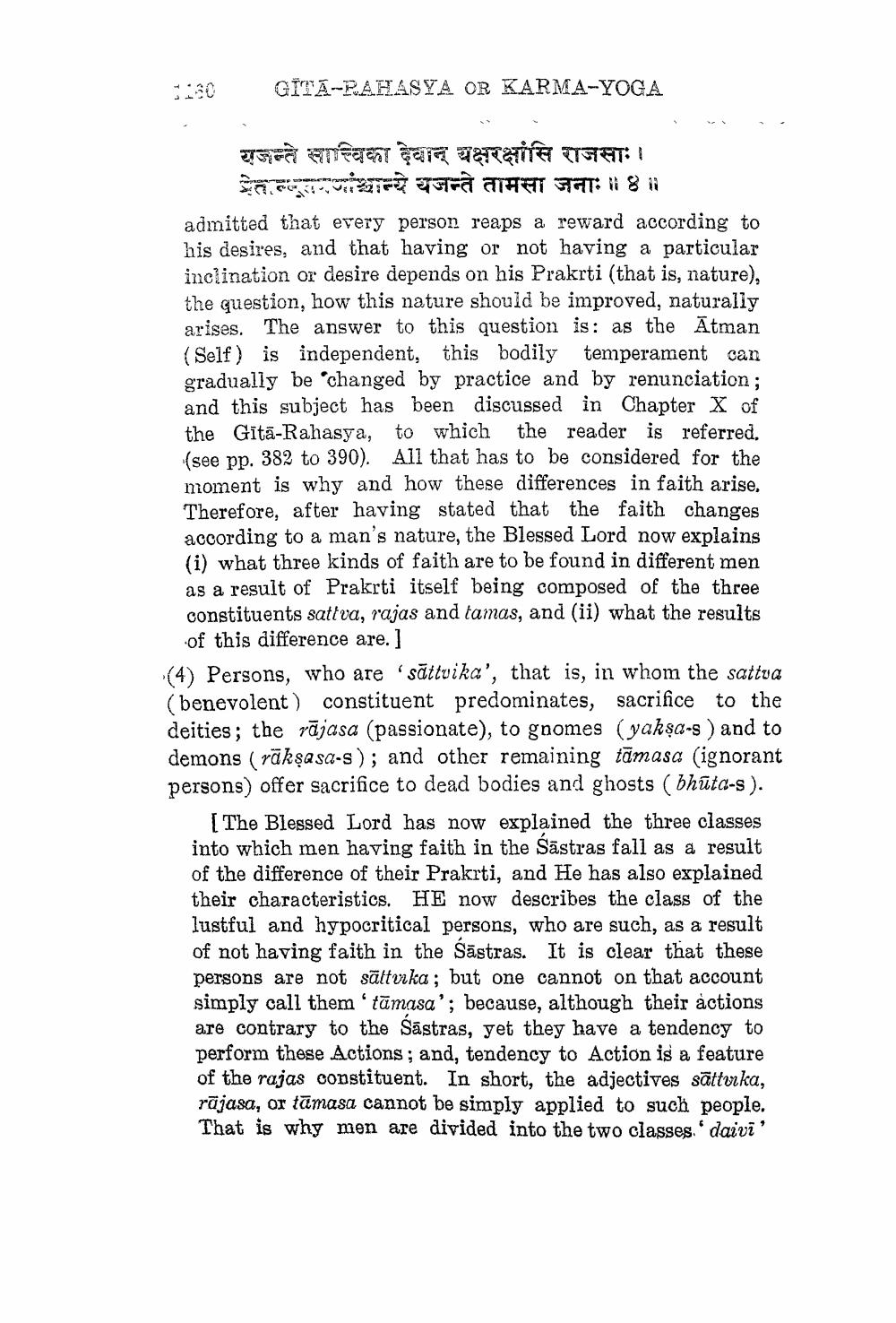________________
120
GITA-RAHASYA OR KARMA-YOGA
The gonfalcat qarz POTRETE TETET: 1
प्रेताल्पश्चान्ये यजन्ते तामसा जनाः॥४॥ admitted that every person reaps a reward according to his desires, and that having or not having a particular inclination or desire depends on his Prakrti (that is, nature), the question, how this nature should be improved, naturally arises. The answer to this question is: as the Atman (Self) is independent, this bodily temperament can gradually be changed by practice and by renunciation; and this subject has been discussed in Chapter X of the Gītā-Rahasya, to which the reader is referred. (see pp. 382 to 390). All that has to be considered for the moment is why and how these differences in faith arise, Therefore, after having stated that the faith changes according to a man's nature, the Blessed Lord now explains (i) what three kinds of faith are to be found in different men as a result of Prakrti itself being composed of the three constituents sattva, rajas and tamas, and (ii) what the results
of this difference are.] (4) Persons, who are sättvika', that is, in whom the sattua (benevolent) constituent predominates, sacrifice to the deities; the rājasa (passionate), to gnomes (yakşa-s ) and to demons (räkşasa-s); and other remaining tāmasa (ignorant persons) offer sacrifice to dead bodies and ghosts (bhūta-s).
(The Blessed Lord has now explained the three classes into which men having faith in the Sāstras fall as a result of the difference of their Prakrti, and He has also explained their characteristics. HE now describes the class of the lustful and hypocritical persons, who are such, as a result of not having faith in the Šāstras. It is clear that these persons are not sālturka; but one cannot on that account simply call them' tūmasa'; because, although their actions are contrary to the Sāstras, yet they have a tendency to perform these Actions; and, tendency to Action is a feature of the rajas constituent. In short, the adjectives sättverka, rājasa, or tāmasa cannot be simply applied to such people. That is why men are divided into the two classes.' daivi'




